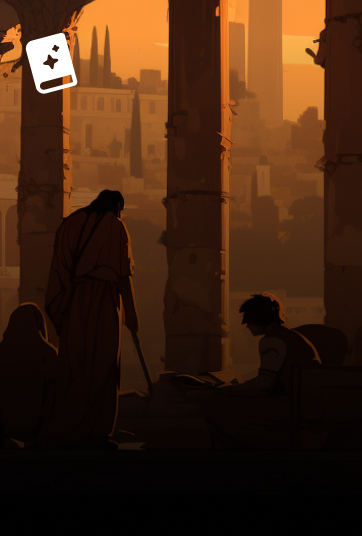
An Artist of The Floating World
Ratings35
Average rating3.8
*Kazuo Ishiguro's new novel Klara and the Sun is now available* SHORTLISTED FOR THE BOOKER PRIZE WINNER OF THE WHITBREAD (NOW COSTA) BOOK OF THE YEAR 1948: Japan is rebuilding her cities after the calamity of World War II, her people putting defeat behind them and looking to the future. The celebrated painter Masuji Ono fills his days attending to his garden, his two grown daughters and his grandson, and his evenings drinking with old associates in quiet lantern-lit bars. His should be a tranquil retirement. But as his memories continually return to the past - to a life and a career deeply touched by the rise of Japanese militarism - a dark shadow begins to grow over his serenity. 'An exquisite novel.' Observer 'Pitch-perfect . a tour de force of unreliable narration.' Guardian 'A work of spare elegance: refined, understated, economic.' Sunday Times
Tags
Mood
Reviews
Popular Reviews
Reviews with the most likes.
Had this been my first novel by Kazuo Ishiguro I would have given this novel five stars. But after reading “A Pale View of Hills” and “The Remains of the Day” I am - how to say - used to his style and the relativity going on his books. Masuji Ono, the namegiving artist, is another typical protagonist of Ishiguro - as far as I have come to know his work. I deeply appreciate his style of telling the story from a purely subjective point of view. The way his characters relate stories from their past. ‘An Artist of the Floating World' worked great for me with Masuji's meandering voice and the hints at things and dark secrets that were yet in store for the reader. Yet somehow I was missing something here I found in his other works, or rather, I did not find more than what I had already found in his other works.
Beautiful. An amazing ability to so vividly create a character with such an economy of words.
Broad brushstrokes
“Of course, at times, when I remember those brightly-lit bars and all those people gathered beneath the lamps, laughing a little more boisterously perhaps than those young men yesterday, but with much the same goodheartedness, I feel a certain nostalgia for the past and the district as it used to be. But to see how our city has been rebuilt, how things have recovered so rapidly over these years, fills me with genuine gladness. Our nation, it seems, whatever mistakes it may have made in the past, has now another chance to make a better go of things. One can only wish these young people well.” (206)

















.jpg&width=67&height=100&type=webp)









